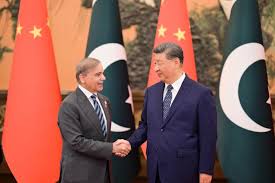With a summit in Rome, Italy and Algeria align their geopolitical pipeline

Rome: Italy and Algeria strengthened their strategic partnership through an intergovernmental summit and business forum in the capital of Italy. From Algiers, analyst Slimani notes that the goal is to surpass $20 billion in trade, driven by the Mattei Plan. From Rome, Italian expert Profazio highlights the delicate issue of Western Sahara and Italy’s balancing role.
What’s happening in Rome? On July 23, Villa Doria Pamphilj will host the sixth Intergovernmental Summit between Italy and Algeria, co-chaired by Italian Prime Minister Giorgia Meloni and Algerian President Abdelmadjid Tebboune, accompanied by numerous ministerial delegations.
In parallel, the Italy-Algeria Business Forum takes place at the Parco dei Principi Hotel. It gathers around 500 companies for thematic panels on energy, infrastructure, industry, and targeted B2B sessions, organised by Italy’s Foreign Ministry and ICE.
State of play. Algeria has been Italy’s top gas supplier since 2022, surpassing Russia following the Ukraine invasion.
The most recent agreement, signed on July 10 by Eni and Sonatrach, outlines 30 years of joint development in the Zemoul El Kbar area.
Beyond energy, Italy is expanding into agri-business, automotive components, and green technologies. With over 150 Italian firms operating in Algeria, Rome is Algiers’ top trade partner, accounting for $14 billion in bilateral exchange in 2024.
From Algiers. According to analyst Abdelkader Slimani, “Italy is seen as our first commercial and strategic partner. We expect the forum in Rome to pave the way for greater investment in agriculture, automotive, and green energy.”
Slimani adds, “Italian companies are already investing in Algeria’s Sahara region, and the government’s goal is to exceed $20 billion in trade.”
The Mattei Plan, he says, “can act as a multiplier for cooperation, not only in Algeria but across the wider region.”
From Rome. Umberto Profazio, analyst at the NATO Defense College Foundation, notes that “the Rome-Algiers axis rests on solid foundations but operates in a complex geopolitical setting. After tensions with Spain and Morocco, Italy has taken a cautious stance on Western Sahara.”
Rome, Profazio points out, “remains the only major European country not to have endorsed the Moroccan autonomy plan, which is an important signal to Algiers.”
On the Israel issue, differences persist, “but diplomatic guardrails help preserve both sides’ interests and allow for pragmatic cooperation.”
What we’re watching. The summit is expected to yield memoranda and industrial agreements, reinforcing a partnership driven by shared economic goals and a common vision for regional stability.
In an increasingly strategic Mediterranean, Italy and Algeria seek alignment on energy and managing crises across North Africa — with Libya chaos at the forefront.





